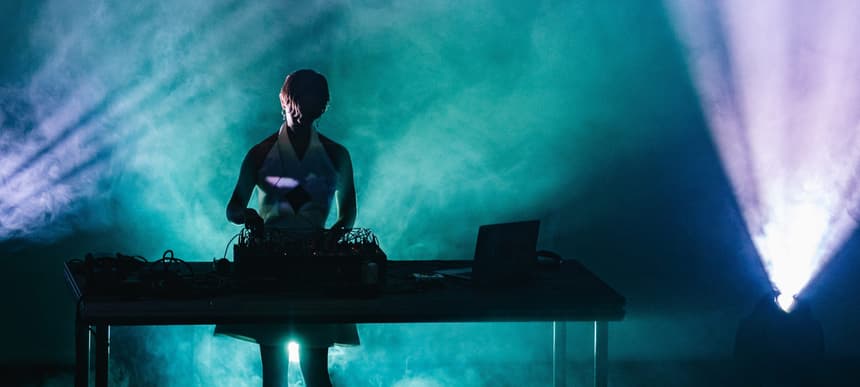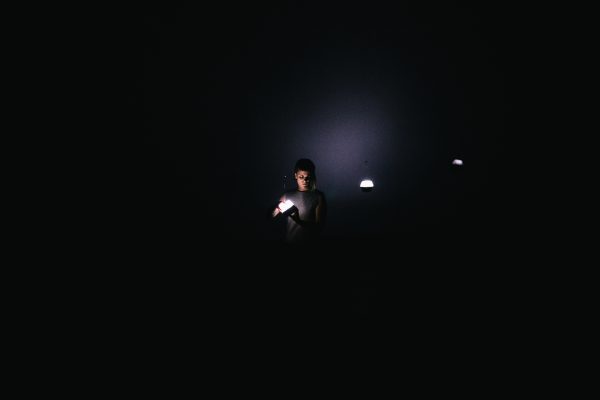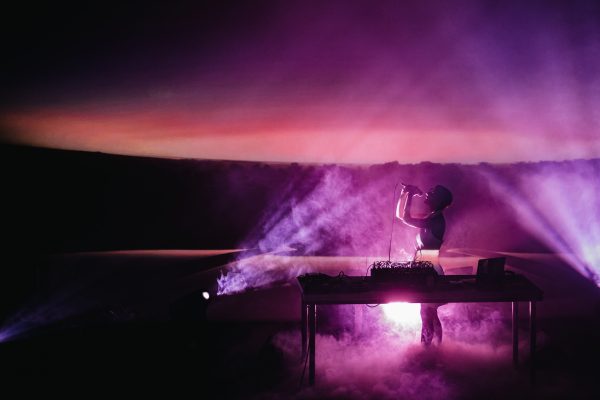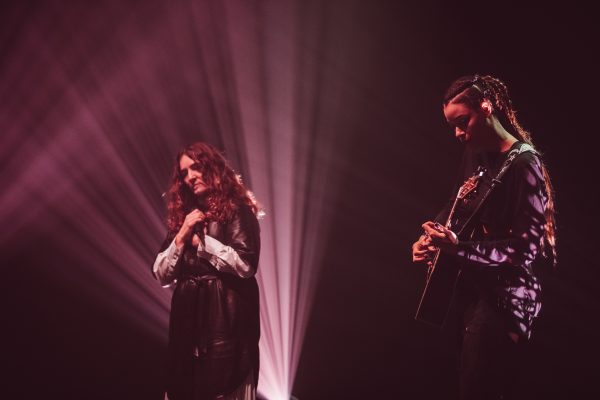
A confluence of art and technology, ACCA Digital 2019 saw electronica's finest traverse the digital frontier
Protruding boldly out of the ground on the University of Sussex’s campus, the Attenborough Centre for Creative Arts (ACCA) welcomed back a host of electronic music’s most progressive thinkers for this year’s ACCA Digital in partnership with Brighton Digital Festival.
The Grade II listed venue was originally designed by Sir Basil Spence, a renowned Scottish architect who was influenced by Modernism and Brutalism. Having undergone a multi-million pound refurbishment, the building was reopened to the public in 2016, with its state-of-the-art facilities making as much of an impression on the interior as the structure’s exterior.
Ever-growing advancements in digital technology have hugely contributed to the reshaping of our lives and culture in ways that could never have been imagined not too long ago. As a society that is growing increasingly intertwined with machines, the specific future of this relationship is uncertain, however it is one that is assured to continue developing.
The Brighton festival recognises the innovative and influential creativity of the digital economy and culture sectors; providing space for a meaningful critique of technology’s role in altering the world around us, through live performances and installations across fourteen days.

Myriam Bleau drew inspiration from popular science fiction and mysticism for her unique audiovisual installation. The Montreal-based composer dextrously manipulated a set of luminous pendulum interfaces to create a corroded and despondent soundscape of jagged rhythms. Motion sensors allowed for live manipulation of sound through a variety of spins and oscillations, with dynamic noir-like silhouette projections of the artist an omnipresent feature throughout the performance.
After a short interlude providing ample time to fully digest the previous act, Caterina Barbieri took to the stage. Barbieri has become synonymous in the electronic world for exploring the psycho-physical effects of repetition and pattern-based operations in music, while unravelling complex themes related to machine intelligence and object oriented perception within sound.
A thick smoke submerged the ankles of the Berlin-based composer before cascading down off the stage as the algorithmic beats flooded the theatre. An array of brooding synths built in sequence before crashing out into distortion, making way for waves of angelic vocal projections and harmonious sonics. The stage was unavoidably filled with Barbieri’s presence and as the final transmission fizzled out into silence, the standing ovation that quickly followed was hardly a surprise.

The effortlessly cool YaYa Bones came equipped with just a keyboard and beat pad, looping and layering vocals and drum kicks in real time to create a dramatic live sound. Seamlessly switching from smooth melodies to thumping spoken word, the short performance did enough to prove the versatility of the young artist and left the audience shouting out for more come the end.
Planningtorock drew the biggest crowd at ACCA that particular night however, with an acoustic rendition of their emotionally-charged album ‘Powerhouse’. Taking to the stage with artist and producer Simonne Jones on guitar, the pair delivered a stripped back and intimate interpretation of the record that was previously unheard. The visceral performance took a biographical approach, highlighting lived experiences as a non-binary artist and uncovering stories around family and identity itself.
The latter section of the performance switched up the vibe as they returned to their electronic roots, galvanising the crowd into a dancing frenzy with some joining the pair on stage to see out the rest of the show. The elation they brought the fans was clear to see.

Perhaps the most mind-bending and ‘out there’ performance of the lot though, was Holly Herndon‘s live portrayal of her third album ‘PROTO’. Unlike her previous records, the latest instalment utilises the voices of a choral ensemble, including that of ‘Spawn’, an A.I. ‘baby’ trained to use neural networks to riff off what it hears.
Since releasing her first album ‘Movement’ in 2012, Herndon has successfully drawn influence from a variety of electronic and avant-garde pop; carving out a dynamic and unique sound of her own – with ‘PROTO’ possibly proving her most ambitious project to date.
Despite the absence of Spawn (who was left back in Berlin), Holly took to the stage with five choral vocalists for the rendition of her progressive record. A hybridity of machine and humanity was ever-present throughout the act, with the choir’s digitally-compressed vocals used as the main body of the sonic experience, transitioning from naked, celestial harmonies to pounding synthesised tracks. The futuristic setlist at times verged on narcotic – a hallucinogenic portrayal of mankind’s ever-evolving relationship with machine intelligence.
“Choosing to work with an ensemble of humans is part of our protocol. I don’t want to live in a world in which humans are automated offstage. I want an A.I. to be raised to appreciate and interact with that beauty,” Holly’s said of the project, and despite the overarching influence of technology on her sound, you can’t help but notice the deep elements of humanity at its core.
Despite the intimate nature of ACCA Brighton Digital Festival, the sounds and visions communicated to the audience were progressive and far-reaching. The event brings together diverse sections of the city’s population, with creators and spectators alike becoming equal participants in shaping the future of our digital landscape.
Find out more about the festival here.
Related: Read our review of SEMIBREVE 2019 in Braga, Portugal













